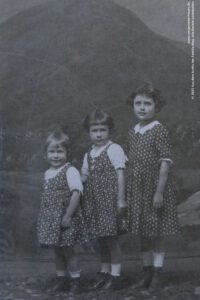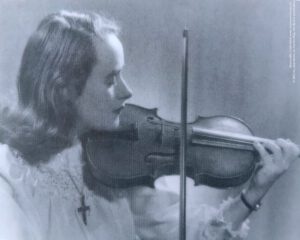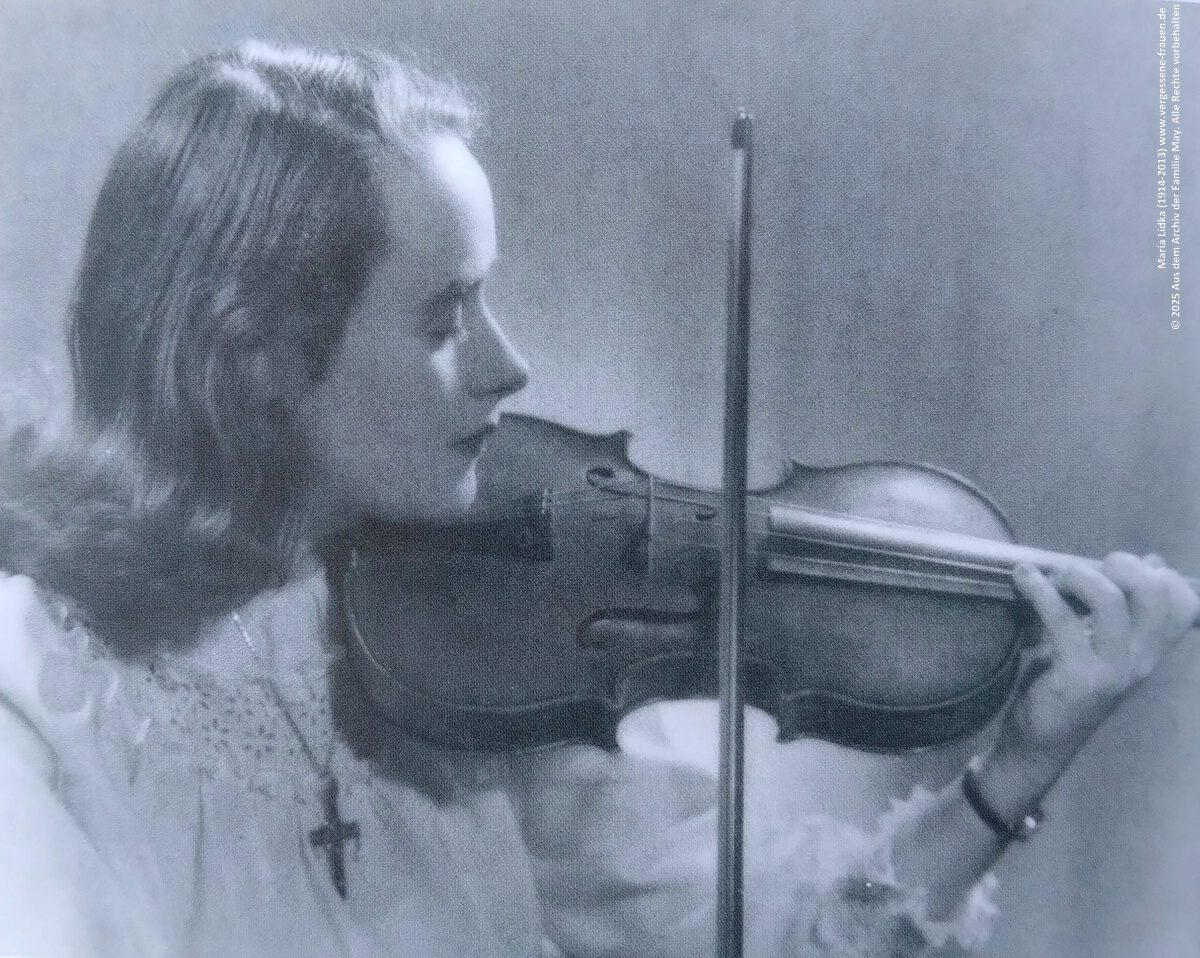Marianne Liedtke kennen in Deutschland vermutlich nur eingefleischte Musiker:innen, die sich für ihre Kolleg:innen aus anderen Ländern interessieren. Das wäre sicher anders gewesen, wäre 1934 nicht der Geigenlehrer von Marianne Liedtke emigriert, weil er in Deutschland wegen seiner jüdischen Herkunft nicht mehr arbeiten durfte und hier sein Leben gefährdet war. Aber auch Marianne hätte wegen ihrer jüdischen Wurzeln mit Repressionen rechnen müssen und wäre sicher nicht wie angedacht zum Studium an der Hochschule für Musik zugelassen worden.
Wie aus Marianne Liedtke Maria Lidka wurde

Ich bin auf Marianne Liedtke, die am 29. Mai 1914 in Berlin geboren wurde, aufmerksam geworden, als ich mehr über das Leben ihrer ältesten Schwester Ilse herausfinden wollte, allerdings auch erst auf Umwegen, weil ich anfangs nichts über Ilse Liedtke wusste. Dann hat mich fasziniert, auf welch unterschiedlichen Wegen die Liedtke-Schwestern die NS-Zeit überlebt haben. Die mittlere Schwester Ursula war mit einem Adeligen verheiratet und hat sich in den Niederlanden versteckt gehalten. Ilse blieb in Berlin und wurschtelte sich irgendwie durch, ohne sich vom System vereinnahmen zu lassen und Marianne ging schon früh nach London, um dort ihre musikalische Ausbildung und Karriere fortzusetzen. Dabei musste sie ihren früheren Lebensstandard allerdings herunterschrauben, der Vater war acht Monate, nachdem man ihn als Jude die Anwaltszulassung entzogen hatte, verstorben. Sein Vermögen wurde eingezogen, sodass Marianne auf sich gestellt war. In der Unterkunft, in der sie mit der Geigerin Lilo Kantorowicz (-2013) und der Cellistin Eva Heinitz (1907-2001) lebte, hat sie Kindern Deutsch- und Geigenunterricht gegeben und sich selbst weitergebildet, ein Studium hatte sie ja nie absolviert. Sie hatte Glück im Unglück, dass sie früh Fürsprecher fand und sich gut vernetzt hatte, so konnte sie schon bald in verschiedenen Ensembles spielen und erhielt eine unbefristete Arbeits- und uneingeschränkte Aufenthaltserlaubnis für Großbritannien. Was vor allem, nachdem 1938 ihr Pass von den Deutschen eingezogen wurde, hilfreich war. Wenn ich lese, mit wem sie gearbeitet hat, unter anderem mit Benjamin Britten, und wie viel Musik in der Kriegszeit in London und Großbritannien gespielt wurde, wird mir wieder klar, was Hitler Deutschland angetan hat, unabhängig von den vielen Menschen, die ihr Leben verloren haben.
 Marianne Liedtke, die sich Maria Lidka nannte, nachdem sie ab 1939 in einem tschechischen Trio mitspielte und unter anderem bei Sendungen des European Service der BBC auftrat, hat ihren Traum, Musikerin zu werden, trotzdem umsetzen können. Nach dem Krieg führten Konzerttourneen sie in europäische Länder und sie war regelmäßig Gast im dritten Programm des BBC. 1955 heiratete sie Walter May, mit dem sie zwei Söhne bekam, die sie nach dem frühen Tod ihres Mannes 1963 alleine erzogen hat. Von 1968 bis 1985 war sie Professorin am Londoner Royal College of Music und wurde weiterhin als Solistin von großen Orchestern gebucht. Mehrere zeitgenössische Komponisten widmeten ihr Kompositionen. Maria Lidka starb am 12. Dezember 2013 in London. © 2025 Dr. Birgit Ebbert www.vergessene-frauen.de
Marianne Liedtke, die sich Maria Lidka nannte, nachdem sie ab 1939 in einem tschechischen Trio mitspielte und unter anderem bei Sendungen des European Service der BBC auftrat, hat ihren Traum, Musikerin zu werden, trotzdem umsetzen können. Nach dem Krieg führten Konzerttourneen sie in europäische Länder und sie war regelmäßig Gast im dritten Programm des BBC. 1955 heiratete sie Walter May, mit dem sie zwei Söhne bekam, die sie nach dem frühen Tod ihres Mannes 1963 alleine erzogen hat. Von 1968 bis 1985 war sie Professorin am Londoner Royal College of Music und wurde weiterhin als Solistin von großen Orchestern gebucht. Mehrere zeitgenössische Komponisten widmeten ihr Kompositionen. Maria Lidka starb am 12. Dezember 2013 in London. © 2025 Dr. Birgit Ebbert www.vergessene-frauen.de
Quelle u. a. Simon May „How To Be a Refugee. One Family’s Story of Exile and Belonging“. Picador 2021
Lexikon verfolgter Musikerinnen und Musiker der NS-Zeit Universität Hamburg: Marianne Liedtke
Vielen Dank an Simon May für die zusätzlichen Informationen und die Erlaubnis, die beiden Fotos aus dem Buch hier zu verwenden.
